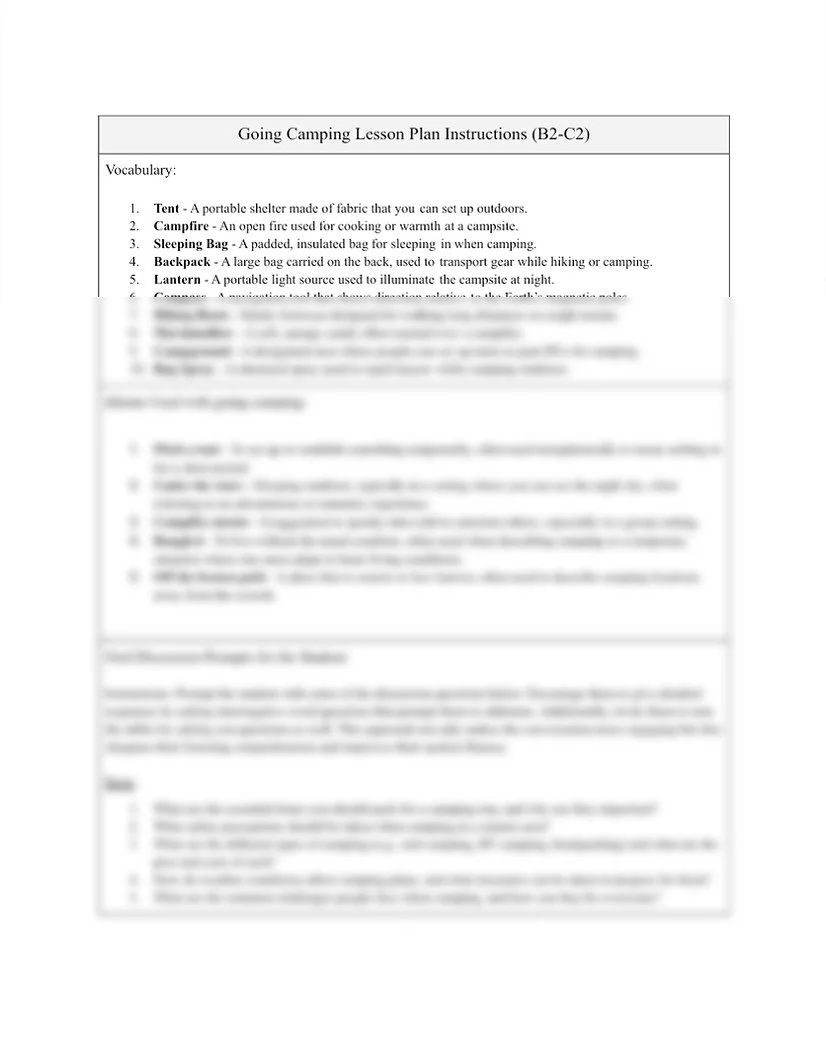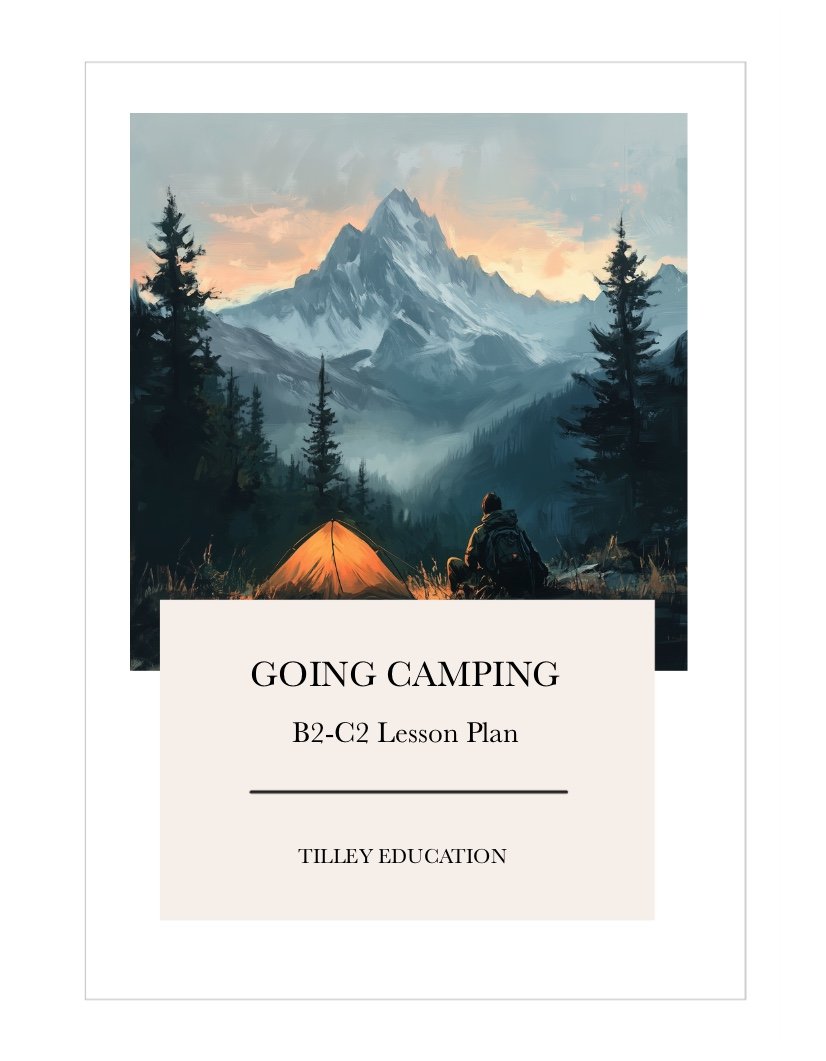EFL Lesson Plan on Going Camping for Online Educators
Our specialized EFL lesson plan designed for B2-C2 students is aimed at helping educators improve a student’s spoken fluency through engaging discussions on going camping. This lesson plan supports educators by offering:
Relevant vocabulary
Idioms
Discussion prompts that encourage personal and cultural reflections
An engaging virtual camping adventure activity
Detailed recommended instructions on how to use and facilitate the lesson, including providing fluency feedback
Ideal for online teaching, it helps students express themselves more confidently while improving their listening comprehension. This provides ample material for dynamic interactions, allowing educators to correct and guide students towards better English fluency skills.
Our specialized EFL lesson plan designed for B2-C2 students is aimed at helping educators improve a student’s spoken fluency through engaging discussions on going camping. This lesson plan supports educators by offering:
Relevant vocabulary
Idioms
Discussion prompts that encourage personal and cultural reflections
An engaging virtual camping adventure activity
Detailed recommended instructions on how to use and facilitate the lesson, including providing fluency feedback
Ideal for online teaching, it helps students express themselves more confidently while improving their listening comprehension. This provides ample material for dynamic interactions, allowing educators to correct and guide students towards better English fluency skills.
Our specialized EFL lesson plan designed for B2-C2 students is aimed at helping educators improve a student’s spoken fluency through engaging discussions on going camping. This lesson plan supports educators by offering:
Relevant vocabulary
Idioms
Discussion prompts that encourage personal and cultural reflections
An engaging virtual camping adventure activity
Detailed recommended instructions on how to use and facilitate the lesson, including providing fluency feedback
Ideal for online teaching, it helps students express themselves more confidently while improving their listening comprehension. This provides ample material for dynamic interactions, allowing educators to correct and guide students towards better English fluency skills.

